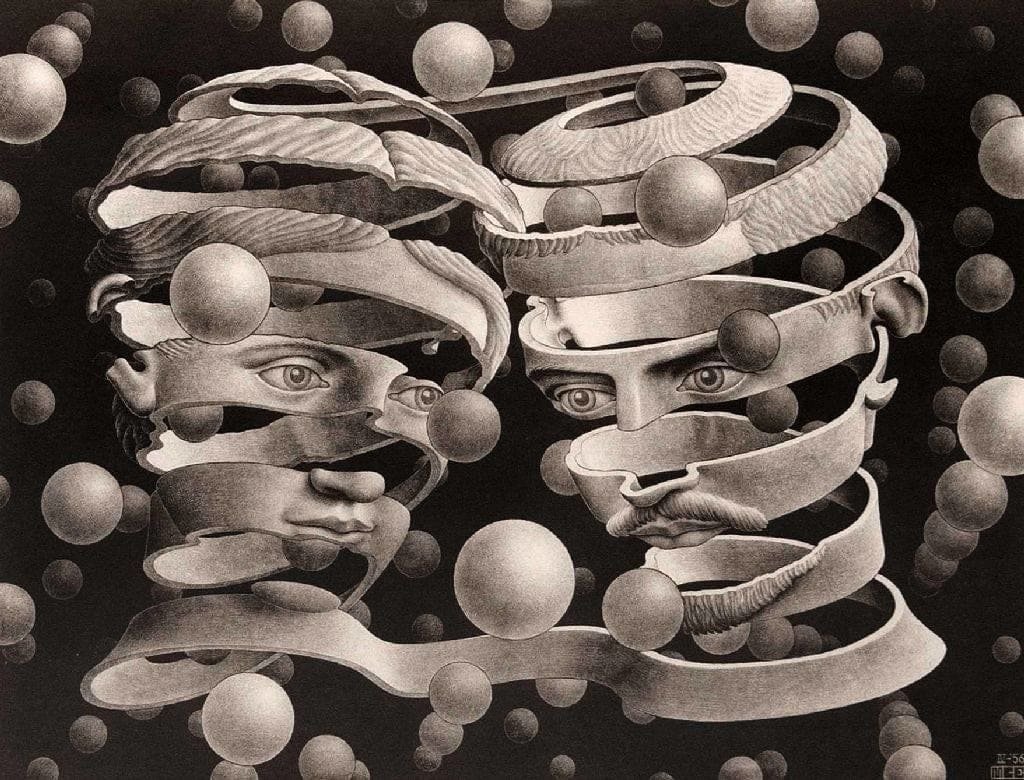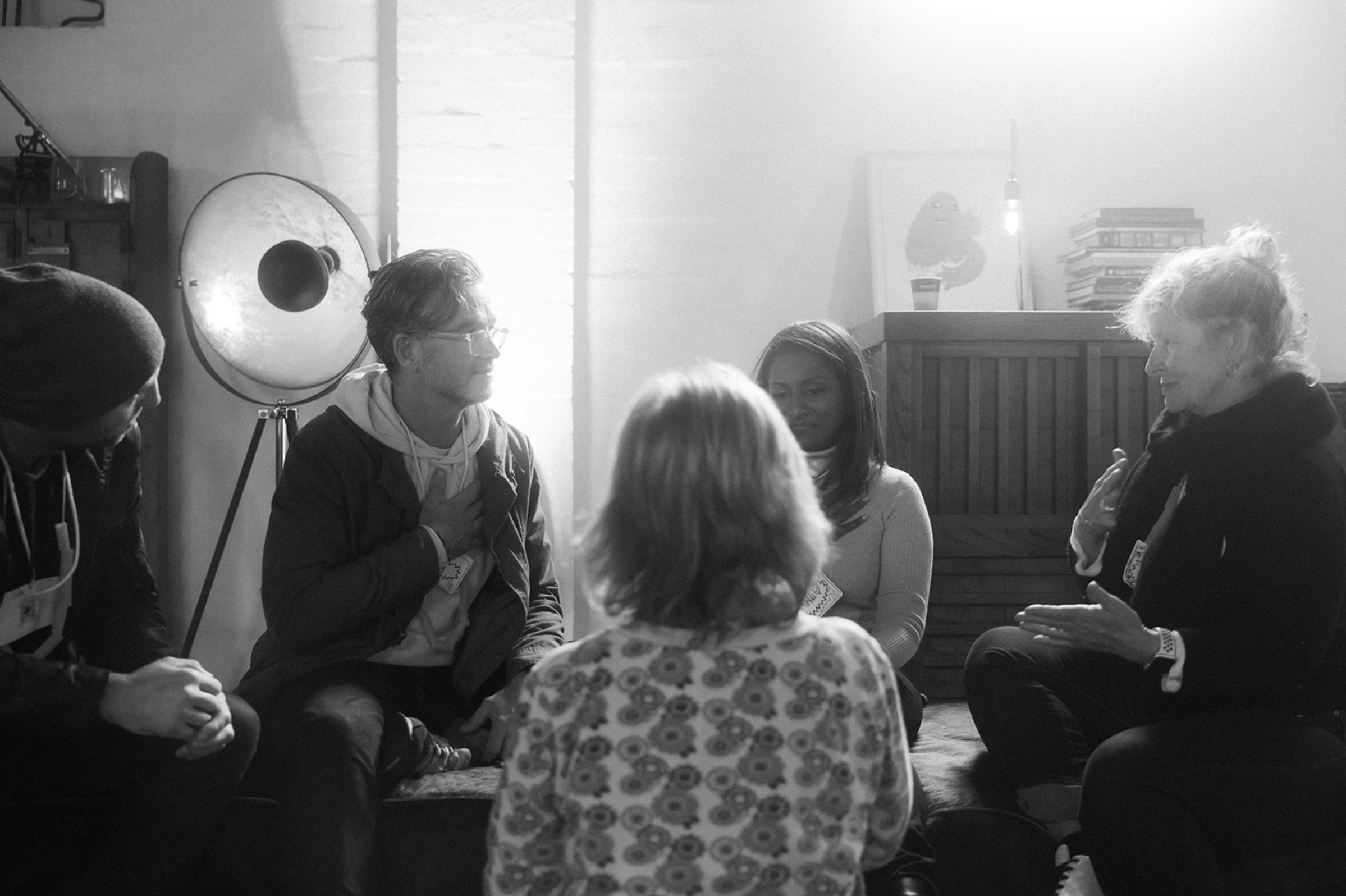Thinking-Machines and the Atrophy of the Human Part 2
Part 2: A Wild Call to Become Human Again
In Part 1, we explored how the allure of technological progress has left our deeper humanity hollowed out - rife with unfeeling apathy and with our worldly embeddedness in a state of atrophy. We attempted to explore and briefly articulate how it is that, out from this state of ‘technological wandering’ comes an apathy, a diminishment of a capacity to pay attention and care about what is inherently and truly valuable at the heart of being human.
Thinking-Machines and the Atrophy of the Human Part 1
Part 1: Atrophy and Apathy
The Thinking-Machine has seamlessly taken a position in our collective minds as a trusted ‘other’ - something to turn towards for knowing. More disturbing than merely seeking abstract knowledge is that in our dark moments, where so many are isolated and displaced, the Thinking-Machine has now become the one to turn-towards to be-known.
Being Right in a Time of Polarisation
Righteous anger by itself is no threat to the systems of violence and oppression. In fact it can even serve those systems by directing energy away from anything that threatens real power.
How can we learn to harness our passion for positive change without contributing to the divides between us?
Does Conflict Always Need to be Destructive?
Here we are, approaching the end of 2024. I’ve heard from my elders that although they’ve lived through many precarious moments in history, right now feels to be the most disorganised, uncertain, and scary time to be alive. There are many important reasons for feeling this which I will not list here, but I would like to focus on one area which seems particularly alive for me now: Conflict.
What are the Inner Development Goals (IDGs)?
The Inner Development Goals (IDGs) represent a transformative approach to personal and societal growth, emphasizing the critical role of inner development in achieving sustainable global progress.
Understanding Shame: Insights and Treatment Approaches
Shame is a deeply painful emotion that arises from the belief that one is fundamentally flawed or unworthy. Unlike guilt, which is related to specific behaviors, shame is more about the self and can have a pervasive impact on an individual’s mental health and well-being. Understanding shame and how to address it is crucial for fostering healthier emotional lives.
What is Interpersonal Group Therapy?
Our mental health is intricately linked to our interpersonal experiences, and group therapy offers a collaborative environment for individuals to explore their behaviors, thoughts, and feelings in relation to others. Explore the purpose and practice of group therapy here, to see if you might like to explore joining a program.
Why Developing Our Moral Imagination is Crucial for Cultural Change
The development of the moral imagination is a cornerstone for meaningful cultural change. This concept, which involves the ability to envision and empathize with the experiences and perspectives of others, is vital for fostering a more just and compassionate society.
Psychotherapy and Soul
The word “Psychotherapy” is derived from the two Greek words: "psyche or psūkhḗ," meaning soul, and “therapeia” meaning “serve” or “attend to”. Psychotherapy therefore literally means; “to serve, or attend to, the soul”.
Introducing Turning Ground
We’ve renamed Cornerstone, to Turning Ground. Here’s a little background into the reasons for this, our thinking-feeling in our new name, and hopes for Turning Ground moving forward.
Exploring and Understanding: Anxiety
Anxiety, a universal human experience for most of us at various points in our lives, is an intricate and multifaceted experience which involves the interplay of thoughts, emotions, and bodily sensations.
In this piece, we will explore and attempt to understand anxiety - the types of anxiety which we may experience, the potential causes and origins, and pathways to responding and overcoming anxiety.
Exploring and Understanding: Depression
‘Depression’ has a long history, and has come to be used as a colloquial term in everyday life - a sense of feeling ‘down’, ‘saddened’ or overall ‘melancholic’ about some particular event, circumstance, or chapter in life. The symptoms of depression may help us understand what is meant by this encompassing term - sadness, fear, anxiety, despair, an overall sense of helplessness and overwhelm.
In this short piece, we will look to explore how depression may be understood from a developmental frame, whilst briefly outlining some strategies for managing and overcoming depression.
What is Integrative Psychotherapy?
Integrative Psychotherapy is a form of psychotherapy That embraces a multi-disciplinary, holistic, tailored approach that specifically caters to the needs of the individual. At its core, integrative psychotherapy begins with the subjective inquiry into one’s own lived world as the basis of understanding how to begin addressing the concerns one is facing.
What connects philosophy, psychotherapy, and culture?
Philosophy has traditionally played a key role in shaping our understanding of human nature, the world around us, and our place in it. It provides a framework for asking fundamental questions about life, such as the nature of existence, truth, morality, and the meaning of life. These questions are also at the heart of psychotherapy, which seeks to help individuals better understand themselves and their relationships with others.
Understanding the Window of Tolerance
The Window of Tolerance is a term coined by Daniel Siegel, describing a state of optimal arousal for daily and social functioning. As a model, it supports us in understanding the movements of our Autonomic Nervous System (ANS), and how we might build regulatory strategies to maintain optimal arousal.
















